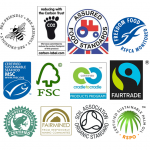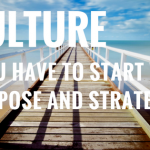We all know the mantra ‘reduce, reuse, recycle’…. What this is meant to mean is firstly reduce your materials and impacts by changing your product/service, then try reusing your finished products (straight reuse or value added upcycling) then when all else fails, recycle into something else. Somedays it seems folks only think about the last one, but sadly we’re not going to change the world just by recycling our coke cans and newspapers…
Last week I went to an interesting talk on the ‘reuse’ part of it – oft overlooked, distinctly uncool in green circles, as it doesn’t have the funkiness of innovation (to reduce) or the mass appeal of recycling. The talk was by Professor Walter Stahel, founder of the Product-Life Institute in Geneva, and by the looks of it a large brain with much experience in the economics of greening the economy and reducing material consumption.
Sifting through all the theory, there were 5 interesting learnings:
1. Re-use badly needs an injection of innovative thinking and to regain some ‘cool‘ within the business world – with all the creative marketing brains around I’m sure we can find some solutions under the guise of ‘innovation’ that utilise reuse opportunities for packaging, products, or elements of either…
2. Our economy is built on endlessly replacing what we already have – did you know the number of new cars exactly equals the number of scrapped cars in most countries in Europe now? We are not getting more, just newer… We are in a ‘Red Queen’ position of running to stand still… Most businesses build in obsolence not endurance, because they only make money by selling new stuff. But we could focus on value through endurance, and new income streams that do not require products and therefore obsolence – what Professor Tim Jackson calls the move to a service economy.
3. A ‘Performance Economy’ is a vision of the future that decouples growth from raw resource consumption – basically more money for less stuff… technically a circular rather than linear economy that treats all resources and wastes as inputs and minimises use of raw resources – so less extraction of metals, minerals and fossil fuels. This would be better for value growth, employment and for reduced emissions and energy demand – 3/4 of labour input is at the manufacturing stage, only 1/4 at extraction stage, whereas 2/3 of energy used is at extraction, and only 1/3 at manufacturing. Therefore the more we manufacture, with existing already-extracted materials, the more employment and value we get for less energy and material input… as if by magic…
4. There are many hurdles to overcome – technology barriers, category and product specific issues, and material degradation (wear out, or inability to separate eg. the small bits in your mobile phones)… but a lot of them are just behavioural issues, ways that we work, but we don’t have to be that way. With a bit of creativity, there’s nothing here we can’t overcome…
5. In coming decades we will see a ‘dash for ownership’ – in a world of rising prices, businesses will need to look at take back, reuse and recycling as ways to reduce their costs of inputs, and hang on to the precious metals, minerals and fuels that they have paid for… “Todays goods and components are tomorrow’s resources at yesterday’s prices”
I’d like to see the resurgence of ‘Reuse’ as a challenge within innovation programmes- we as marketers need to take all 3 on. We are in the business of giving consumer value, and driving company profit. If that can be achieved with reduced inputs, reused materials, and recycled and recyclable outputs, it’s a win win win….
Any thoughts? Any great examples… please add a comment…
ps A favourite fact – 99% of all the gold humankind has ever dug out of the ground, in one of the most energy intensive (and now polluting) mining methods, is now buried back underground as gold bars in bank vaults. Try explaining that!



